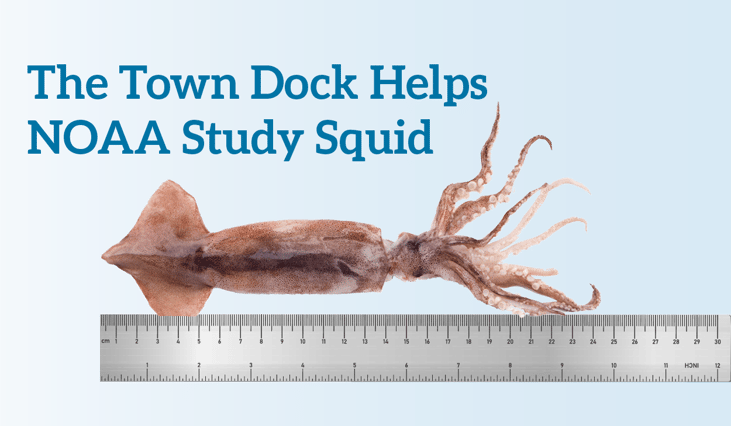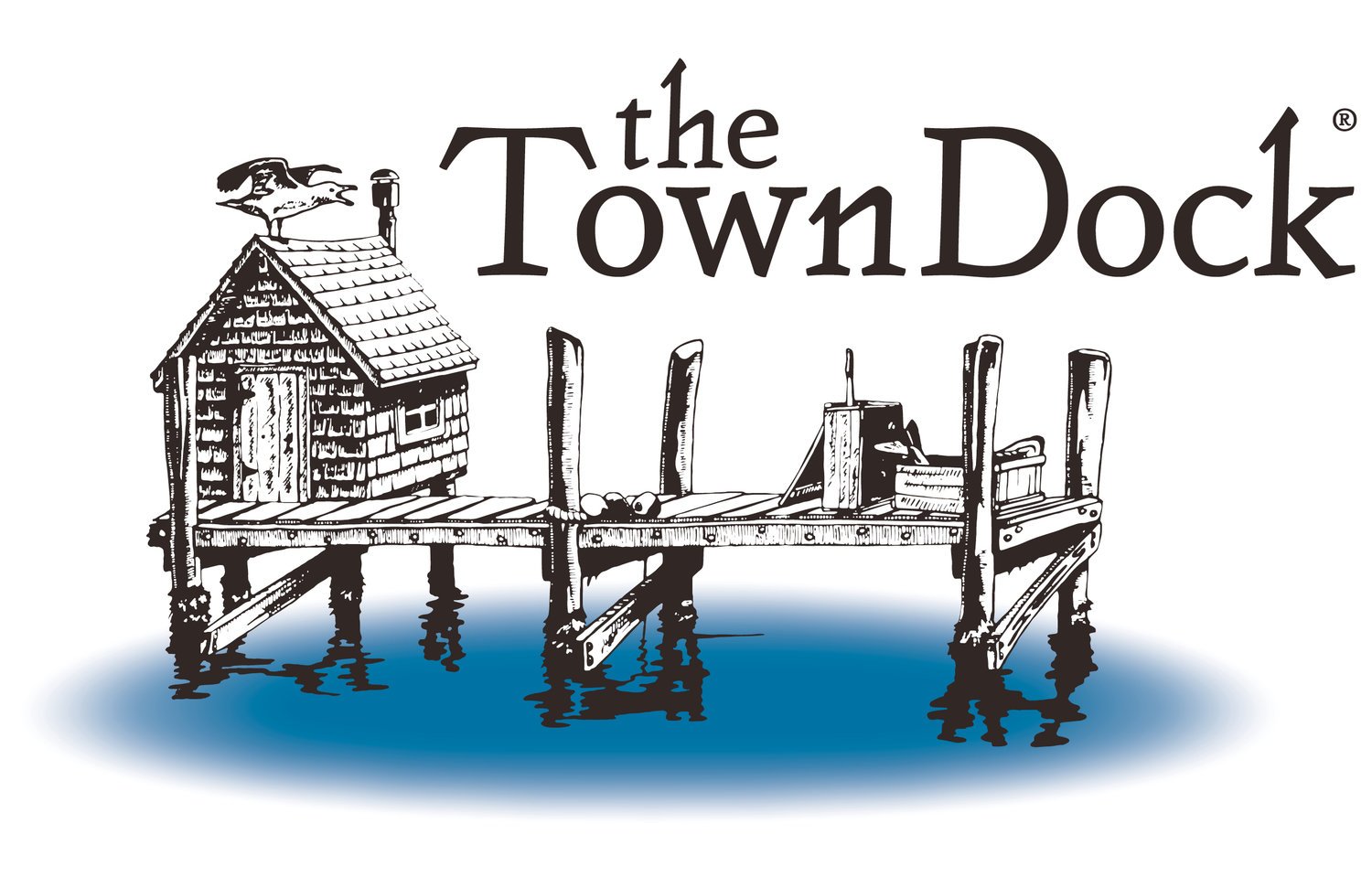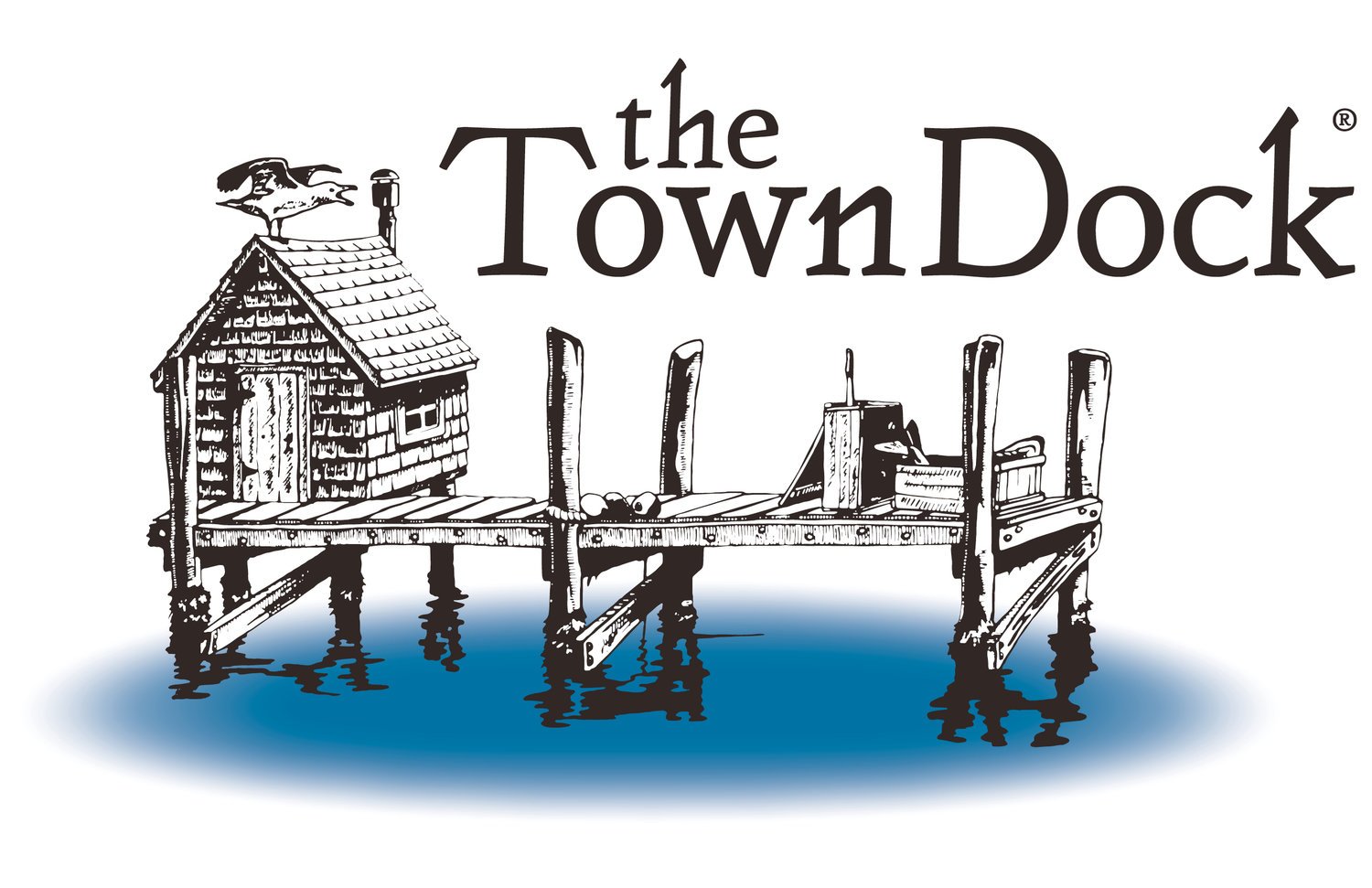The Town Dock Helps NOAA Study Squid

As part of their ongoing scientific studies, the National Oceanic and Atmospheric Administration (NOAA) has been studying both Northern Shortfin Squid and Longfin Inshore Squid. When they asked The Town Dock to help their squid studies, we were happy to jump in and support their research.
In 2020, The Town Dock was the only industrial partner to help NOAA with this research. This year, The Squid Electronic Size Monitoring Pilot Project was designed to capture a standardized data stream of the size and weight of the short-lived Northern Shortfin Squid. The science center staff developed a package that included an electronic measuring board, digital scale, and rugged tablet with custom app, making the data collection both efficient and accurate.
However, NOAA faced some internal delays that resulted in that specially-developed measurement equipment in the article not getting deployed until the very end of the Shortfin season. When we found out that this equipment wouldn’t be available in May, our internal Quality Control (QC) team was still happy to assist – even though it would mean a lot more work, in addition to their typical responsibilities.
While they typically work in larger measurements and bulk weight averages, for this research, The Town Dock’s QC team measured squid samples by hand in millimeters and got individual squid weights. By volunteering to do this extra work, we were able to provide NOAA with a full season’s worth of data from May forward, instead of just the last few weeks of August once the equipment was available.
Our dedication to NOAA’s study reinforces our commitment to scientifically-backed decision making. The data we were able to provide will help NOAA make informed decisions on important topics like fishery quotas and sustainability practices.
Going the extra mile is what The Town Dock does, a reflection of our Core Values of teamwork and doing the right thing. Kudos to our QC Team!
You can read more about this initiative on the NOAA website.

